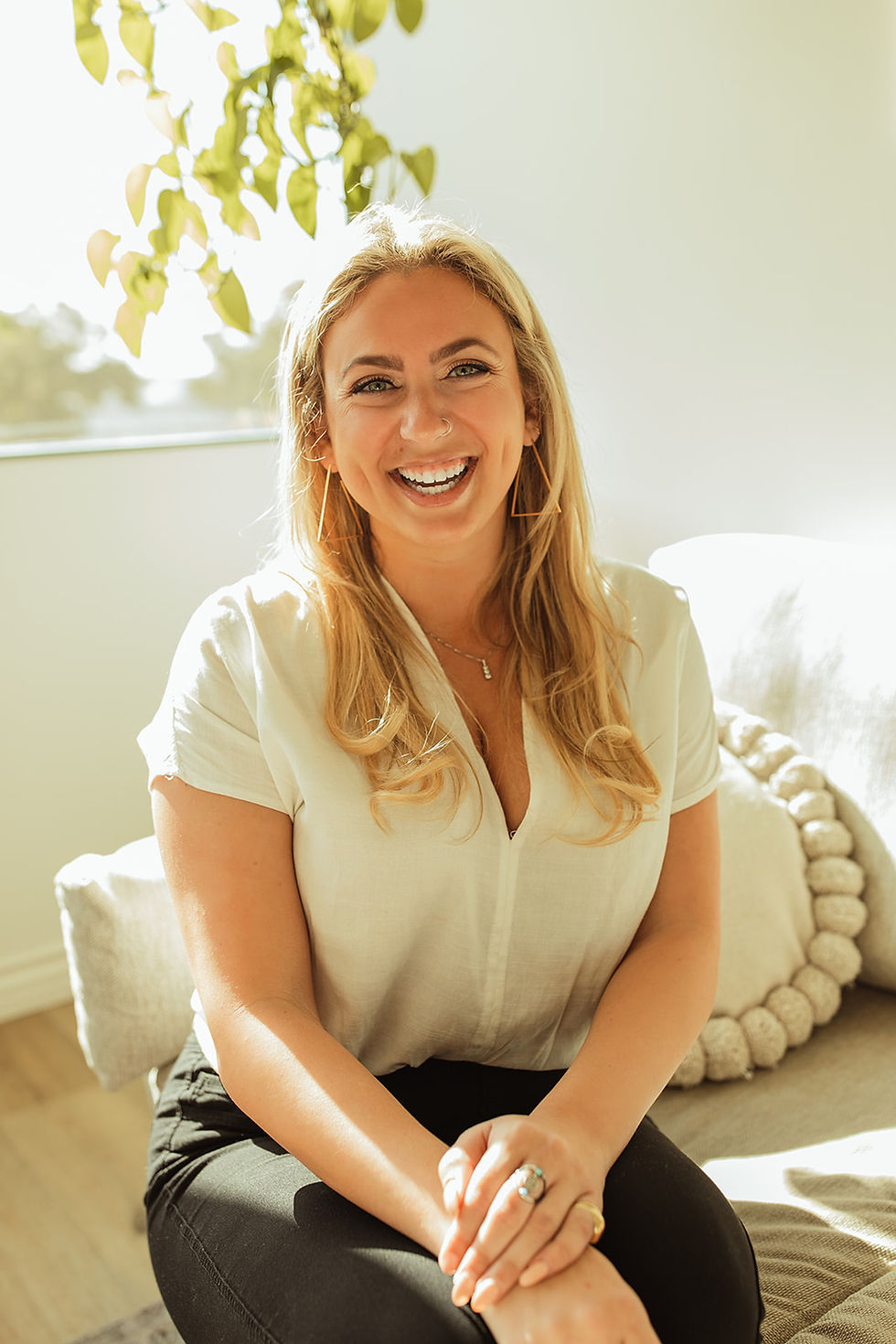Introducing Dr. Dani Schaer
- Dr. Nicole Guzman
- Nov 21, 2023
- 3 min read
Get to Know Dr. Dani

Hi, Dr. Dani! Can you tell us a little about the types of clients you work with?
Hello there, my name is Dr. Dani and I am extremely passionate about working with teens, their families, and 20-somethings. I work with individuals who are 12 and older and may be experiencing depression, anxiety, ADHD, trauma, substance use, risky behaviors, self-esteem, identity, or are struggling with life transitions. When working with this population I do my best to put the teen in the driver's seat to help instill a sense of autonomy and increase confidence. Working with 20-somethings is special as this is a pivotal time to look inward, build insight, and create adaptive coping to handle the different stressors life will throw your way. My goal is to help process the roots and understand how past experiences have shaped 20- somethings, then to help young adults identify what behaviors they want to change to support the person they are growing into, and then help them put their plan into action. I create a special, individualized treatment plan for everyone I work with, making sure I can help support their needs.
And how about your preferred treatment modalities?
I often combine holistic and evidence-based practices when working with any individual. This looks like first exploring all different aspects of a person’s life- what is happening with the family dynamics, with their friendships, at school/work, extracurricular activities, daily movement, what food/drinks they are consuming, help them understand their attachment style, how much screen time, emotional awareness, ability to cope with stress, etc. By understanding all the different components of a person’s life, we are able to start identifying patterns that may come up. Like if a teen is struggling with a friendship how does this impact schoolwork or their ability to cope with stressors or even their other relationships.
Can you help us understand what treatment might entail?
Then we begin to explore the mind-body connection to help people understand that their emotions are not scary, they are simply communicating what is going on internally. By understanding how emotions may present themselves, like headaches, stomach aches, school avoidance, etc., we are then able to pair this with learned coping skills from evidence-based practices like CBT and DBT to help individuals cope or tolerate the moment. While working together, individuals will be taught coping skills to help improve their ability to be mindful, deal with emotion dysregulation, improve distress tolerance, improve interpersonal effectiveness, and learn how to catch and modify unhelpful thinking patterns.
Will other people be a part of my treatment?
Collaboration of care is extremely important when working with anyone. For teens, this might look like bringing parents in during sessions to have conversations about challenges that have been going on at home and create a plan of action moving forward. It might also look like a parent joining at the end of the session so that their teen can teach a new coping skill that they learned so parents can help them practice later. Aside from family members, I do my best to consult with other members of a teen treatment team like a school counselor, psychiatrist, or anyone else who is supporting their growth. For my 20-somethings, this may look more like collaborating with other members of a treatment team, such as a psychiatrist, naturopathic doctor, or having them bring a person from their life into session to discuss a certain issue.
My goal is to help individuals feel more comfortable in their own bodies and feel like they can handle various challenges that come their way. If you are interested in receiving services please feel free to reach out today!.



